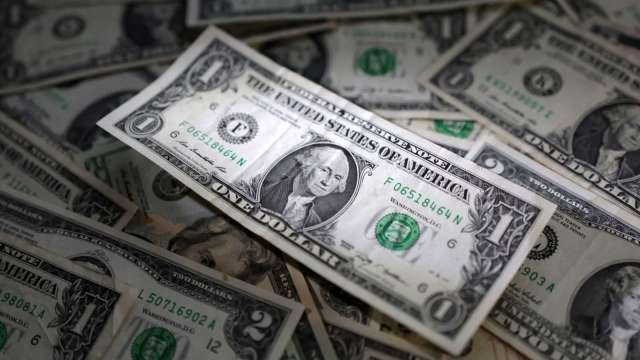Deep Dive into China's Deep Synthesis Algorithm Registration: A Look at the Ninth Batch & Beyond
Meta Description: Unpacking the ninth batch of deep synthesis algorithm registrations in China, analyzing key players like Meitu, Autohome (Dongchedi), and Tencent, exploring the implications for AI regulation, and the future of deepfakes in the Chinese digital landscape. #DeepSynthesis #AIRegulation #China #Deepfakes #AlgorithmRegistration #Meitu #Tencent #Autohome
Hook: Imagine a world where convincing fake videos of anyone, saying anything, could flood the internet. Scary, right? That's the power—and the potential danger—of deep synthesis technology. China, a global leader in AI development, is taking a proactive stance, carefully regulating these powerful tools through a rigorous algorithm registration process. This isn't just about stopping malicious actors; it's about fostering responsible innovation, ensuring public trust, and shaping the future of the digital world. This deep dive into the ninth batch of registered deep synthesis algorithms reveals fascinating insights into the players, the technology, and the implications for China and the global AI landscape. Get ready to unravel the complexities and understand the future of this rapidly evolving field. The stakes are high, and the journey is compelling.
Seed Keyword: Deep Synthesis Algorithm Registration in China
The recent announcement by the Cyberspace Administration of China (CAC) regarding the ninth batch of registered deep synthesis algorithms offers a compelling glimpse into the country's increasingly sophisticated approach to AI regulation. This isn't just bureaucratic paperwork; it reflects a strategic understanding of the potential societal impact of powerful technologies like deepfakes and AI-generated content. The list, released on December 20th via the "NetChina" WeChat official account, includes heavy hitters such as Meitu's text-to-image algorithm, Autohome (Dongchedi's) large language model, and Tencent's versatile speech synthesis algorithm. This signifies a crucial step in China's attempt to balance technological advancement with the urgent need for responsible AI development. It's a high-stakes game of cat and mouse, where innovation races against potential misuse. Let's break it down piece by piece.
Key Players & Their Algorithms: A Closer Look
The ninth batch reveals a diverse range of applications for deep synthesis technology within China. Let's examine some key players and their registered algorithms:
-
Meitu: Known for its photo editing apps, Meitu's inclusion demonstrates the growing intersection of consumer-focused applications and deep synthesis. Their text-to-image generation capability opens doors for creative content creation but also raises concerns about potential misuse for generating fake imagery.
-
Autohome (Dongchedi): This major automotive platform's registration of a large language model, (LLM) suggests the increasing use of AI in information aggregation and potentially, personalized car recommendations. However, this also necessitates careful scrutiny to prevent the spread of misinformation or biased information within the automotive sector.
-
Tencent: A tech giant with sprawling interests, Tencent's registration of a general-purpose speech synthesis algorithm highlights the widespread adoption of AI across various sectors. From customer service bots to interactive entertainment, the potential applications are vast, demanding stringent regulation to prevent malicious use.
Table 1: Key Players in the Ninth Batch of Deep Synthesis Algorithm Registrations
| Company | Algorithm Type | Potential Applications | Regulatory Implications |
|---------------|---------------------------|-----------------------------------------------------|---------------------------------------------------------|
| Meitu | Text-to-Image | Image creation, marketing, creative content | Preventing fake image generation and misinformation |
| Autohome (Dongchedi) | Large Language Model (LLM) | Information aggregation, personalized recommendations | Preventing biased or false information within the auto sector |
| Tencent | General-purpose Speech Synthesis | Customer service, entertainment, education | Preventing voice cloning and identity theft |
The Broader Context: China's AI Regulatory Landscape
China’s proactive approach to regulating deep synthesis algorithms is part of a larger strategy to manage the risks associated with rapidly advancing AI. The CAC's focus isn't simply about punishment; it prioritizes establishing clear guidelines and encouraging responsible innovation. This contrasts with some other countries that may take a more reactive approach. China's approach involves:
-
Mandatory Registration: This ensures transparency and accountability, allowing authorities to track the development and deployment of deep synthesis technologies.
-
Clear Guidelines: The CAC provides detailed guidelines outlining acceptable use cases and restrictions on the technology, mitigating potential harms.
-
Enforcement Mechanisms: While the specifics remain somewhat opaque, penalties for non-compliance or misuse are implied, acting as a deterrent against irresponsible behavior.
This regulatory framework is constantly evolving, adapting to the rapid pace of technological advancements. The emphasis is on proactive risk management, balancing innovation with societal safety.
Deepfakes and the Future: Navigating the Ethical Minefield
The implications of this registration process extend beyond China's borders. The increasing sophistication of deep synthesis technologies, such as deepfakes, presents a global challenge in terms of misinformation and the erosion of trust. China's experience provides valuable lessons for other countries grappling with similar issues. The key takeaway is that proactive regulation, transparency, and international cooperation are essential to mitigate the risks associated with deepfakes and other forms of AI-generated content. Think of it as a global race against the potential for widespread chaos – a race we must win.
Frequently Asked Questions (FAQ)
-
What is a deep synthesis algorithm? A deep synthesis algorithm uses artificial intelligence to create realistic synthetic media, such as images, videos, or audio. Think incredibly lifelike deepfakes.
-
Why is China regulating these algorithms? To prevent the spread of misinformation, protect individuals from identity theft, and ensure responsible innovation in the AI field.
-
What are the penalties for non-compliance? Specific penalties aren't publicly detailed but non-compliance likely carries significant consequences.
-
How does this compare to other countries' regulations? China is relatively proactive, implementing a mandatory registration system, unlike some countries with more reactive approaches.
-
What are the future implications of this regulation? It could set a precedent for other countries and shape global standards for AI regulation.
-
Can I use these registered algorithms freely? No, even registered algorithms have usage restrictions that must be adhered to.
Conclusion: A Balancing Act
China's registration of its ninth batch of deep synthesis algorithms marks a significant step in its proactive approach to AI regulation. It's a balancing act—fostering technological innovation while simultaneously mitigating potential harms. The global community watches closely, learning from China's experience, as we all navigate the complex ethical and societal challenges presented by this powerful new technology. The future of deep synthesis is not merely technological; it is fundamentally human, requiring careful consideration of its impact on our lives and our societies. The road ahead is paved with both opportunity and peril, and responsible navigation is crucial.



